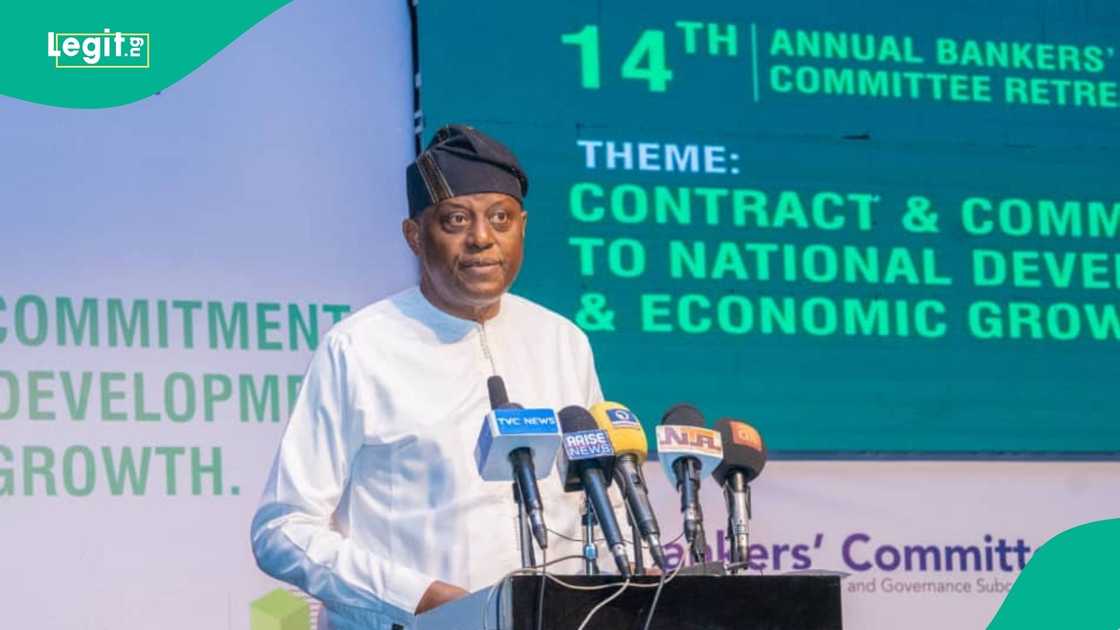Nigeria’s banking industry is on the brink of a significant transformation following the Federal Mortgage Bank of Nigeria’s (FMBN) confirmation that it has received approval from the Central Bank of Nigeria (CBN) to transition into a full-service commercial bank by 2026. This move opens a new chapter for the FMBN, positioning it to stand shoulder-to-shoulder with established financial giants like Access Bank, Zenith Bank, and First Bank, and to offer Nigerians a much broader range of banking products beyond its traditional focus on mortgage financing.
For decades, Nigerians seeking affordable housing have interacted with the FMBN largely as a specialist lender. Now, the shift into mainstream banking promises new competition, more choices, and the possibility of greater financial inclusivity—especially as local voices desire banking options that better reflect their needs.
N37 Billion Disbursed—FMBN’s Commitment to Affordable Housing
FMBN’s Managing Director, Haayatudeen Atiku, recently announced that the bank has disbursed N37 billion to 3,427 contributors of the National Housing Fund. This figure, according to Atiku during the inauguration of the bank’s new headquarters in Gwarimpa, Abuja, highlights FMBN’s determination to improve access to housing finance and empower everyday Nigerians with tangible support.
The decision to situate the new headquarters in Gwarimpa—Africa’s largest housing estate, home to over 300,000 people—was described as intentional by the leadership. FMBN reportedly wanted to be embedded in the center of housing needs, serving both its traditional customers and an expanding client base as it evolves into a commercial banking platform.
Enduring Without Federal Funding—A Test of Resilience
Despite not having received funding from Nigeria’s Federation Account for more than 20 years, FMBN has sustained its operations and integrity, as reported by The Guardian. Atiku explained that prudent management, innovation, and a strong commitment to its mandate have allowed the institution to thrive even when many public entities struggle without government allocations.
“Although we have not received allocations for decades, we have established ourselves as one of the most efficiently managed government-owned institutions, with a strong record of integrity,” he said.
FMBN’s resilience has earned it credibility in Nigeria’s financial sector, with some observers, such as Lagos-based economist Ugo Nwosu, noting that “sustainable public banking demands a creative approach to resource mobilization, especially during funding droughts.”
Expanding Across Nigeria—A New Phase of Growth
Armed with its CBN commercial banking license, FMBN is preparing for nationwide growth. According to Atiku, the bank will establish or upgrade facilities in every state, thereby making mortgage and general banking services accessible to more Nigerians, including underserved urban and rural populations.
Innovation is front and center in these plans. For instance, FMBN’s collaboration with the Pension Commission (PENCOM) has enabled over 6,000 Nigerians to obtain mortgages through the Retirement Savings Account (RSA) platform within the past two years. This is especially significant for workers, showing how the bank can leverage local partnerships to deliver results in a way that’s relevant to Nigeria’s workforce.
Beyond this, partnerships with Family Homes Funds (FHF) have widened the scope of housing opportunities, especially in states like Delta, Kano, Kaduna, Ogun, and Enugu. “It is a step towards closing the housing deficit and demonstrates the possibilities that come with institutional collaboration,” said Abuja-based housing consultant, Victoria Adebayo.
A New Banking Model—Blending Mortgage, Commercial, and Green Finance
FMBN’s journey into commercial banking will not abandon its roots. Instead, it seeks to diversify revenue streams by exploring construction finance, new partnerships with private and public housing developers, and introducing eco-friendly financial products.
“The bank is set to commence facilitation of mortgage access through the MREIF windows while strengthening collaborations with partners to deliver affordable housing nationwide,” Atiku added.
The hope is that—as a full-fledged commercial bank—FMBN will provide a direct financial lifeline to low- and middle-income Nigerians, helping bridge the long-standing divide between specialized mortgage lending and everyday banking. Industry watchers point out that if executed well, such a model could become a template for other African nations grappling with similar housing and banking gaps.
Impact on Nigeria’s Banking Sector—Competition and Innovation Ahead
According to financial analysts, the CBN’s decision to approve FMBN’s commercial bank transition may signal a major realignment in Nigeria’s banking landscape. For decades, a handful of dominant players have set the pace; the arrival of FMBN as a more inclusive, government-backed competitor could drive greater innovation and push down the cost of banking for ordinary Nigerians.
With established banks responding to heightened competition, customers could see expanded service offerings, including more affordable loans, user-friendly mortgage options, and digital banking tools tailored to Nigeria’s fast-rising youth population. Some observers caution, however, that market entry challenges and regulatory compliance could limit the impact in the short term. Nonetheless, early reactions from stakeholder groups have been cautiously optimistic.

Source: Twitter
When FMBN officially launches commercial operations in 2026, attention will focus on whether the new entrant can stimulate the kind of sector-wide change needed to narrow both the financial and the housing gaps in Nigeria—a country with an estimated housing deficit above 20 million units, according to recent data from Nigeria’s Ministry of Works and Housing.
Neighbouring countries and regional banks across West Africa, from Ghana to Côte d’Ivoire, will be watching closely, as the success or challenges faced by FMBN could inform similar developments elsewhere on the continent.
Savings Account Interest Rates—Banks Respond to Policy Shifts
In a related move, commercial banks recently began adjusting interest rates on savings accounts following a revision of the Monetary Policy Rate (MPR) by the CBN. According to customer communications seen by Nowahala Zone, some banks have informed their clients of these changes via email and SMS, updating rates in line with regulatory guidelines.
Union Bank, in an example email notice, stated that its new interest rate on savings accounts will be 8.1% per annum, effective October 1, 2025. Such upward adjustments are expected to benefit savers, but analysts remind the public to stay informed of future policy swings that could impact income from savings and investments.
Local financial expert Ogechi Umeh observed, “These changes are part of the regulatory effort to respond to inflation and global economic pressures, but they also reflect an underlying push towards a more competitive, dynamic banking sector—something that FMBN’s new entry could further accelerate.”
As the financial sector braces for FMBN’s debut as a commercial bank, Nigerians and other West Africans are keenly interested in how these shifts will reshape the customer experience and economic opportunities in coming years.
How do you think the FMBN’s move into mainstream banking will affect your community, savings options, or access to affordable housing? What banking changes do you hope to see across Nigeria and West Africa? Drop a comment below and follow us for exclusive updates and analysis on the future of finance in Africa!
Do you have insights, tips, or a personal story about banking, housing, or financial services in Nigeria or West Africa? We’d love to share your experience with our community — or even help you sell your story! Email us at story@nowahalazone.com and get your perspective featured on our platform.
For questions or support, message us at support@nowahalazone.com.
Stay connected and be the first to know about the latest financial news by following us on Facebook, X (Twitter), and Instagram!










